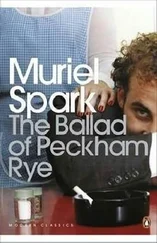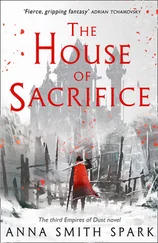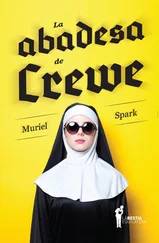Far from putting Jane against Nicholas Farringdon, the scraps of his history that came to her by way of Rudi gave him an irresistible heroism in her mind, and, through her, in the eyes of the top-floor girls.
"He must be a genius," said Nancy Riddle.
Nicholas had a habit of saying "When I'm famous…" when referring to the remote future, with the same cheerful irony that went into the preface of the bus conductor on the No. 73 route to his comments on the law of the land: "When I come to power…"
Jane showed Rudi _The Sabbath Notebooks__, so entitled because Nicholas had used as an epigraph the text "The Sabbath was made for Man, not Man for the Sabbath."
"George must be out of his mind to publish this," Rudi said when he brought it back to Jane. They sat in the recreation room at the other end of which, corner-wise by the open French window, a girl was practising scales on the piano with as much style as she could decently apply to the scales. The music-box tinkle was far enough away, and sufficiently dispersed by the Sunday-morning sounds from the terrace, not to intrude too strongly on Rudi's voice, as he read out, in his foreign English, small passages from Nicholas's book in order to prove something to Jane. He did this as a cloth merchant, perhaps wishing to persuade a customer to buy his best quality of goods, might first produce samples of inferior stuff, feel it, invite comment, shrug and toss it away. Jane was convinced that Rudi was right in his judgment of what he was reading, but she was really more fascinated by what small glimpses of Nicholas Farringdon's personality she got from Rudi's passing remarks. Nicholas was the only presentable intellectual she had met.
"It is not bad, not good," said Rudi, putting his head this way, that way, as he said it. "It is mediocrity. I recall he composed this in 1938 when he had a freckled bedmate of the female sex; she was an anarchist and pacifist. Listen, by the way…" He read out:
X is writing a history of anarchism. Anarchism properly has no history in the sense that X intends- i.e., in the sense of continuity and development. It is a spontaneous movement of people in particular times and circumstances. A history of anarchism would not be in the nature of political history, it would be analogous to a history of the heart-beat. One may make new discoveries about it, one may compare its reactions under varying conditions, but there is nothing new of itself.
Jane was thinking of the freckled girl-friend whom Nicholas had slept with at the time, and she almost fancied they had taken _The Sabbath Notebooks__ to bed together. "What happened to his girl-friend?" Jane said. "There is nothing wrong with this," Rudi said, referring to what he had just read, "but it is not so magnificent a great truth that he should like a great man place it on the page, by the way, in a paragraph alone. He makes _pensйes__ as he is too lazy to write the essay. Listen…"
Jane said, "What happened to the girl?"
"She went to prison for pacifism maybe, I don't know. If I would be George I would not touch this book. Listen…"
Every communist has a fascist frown; every fascist has a communist smile.
"Ha!" said Rudi.
"I thought that was a very profound bit," Jane said, as it was the only bit she could remember.
"That is why he writes it in, he counts that the bloody book has got to have a public, so he puts in some little bit of aphorism, very clever, that a girl like you likes to hear, by the way. It means nothing, this, where is the meaning?" Most of Rudi's last words were louder-sounding than he had intended, as the girl at the piano had paused for rest.
"There's no need to get excited," said Jane loudly.
The girl at the piano started a new set of rippling tinkles.
"We move to the drawing room," said Rudi.
"No, everyone's in the drawing room this morning," Jane said. "There's not a quiet corner in the drawing room." She did not particularly want to display Rudi to the rest of the club.
Up and down the scales went the girl at the piano. From a window above, Joanna, fitting in an elocution lesson with Miss Harper, the cook, in the half-hour before the Sunday joint was ready to go in the oven, said, "Listen:"
_Ah! Sun-flower! weary of time,__
_Who countest the steps of the Sun;__
_Seeking after that sweet golden clime,__
_Where the traveller's journey is done;__
"Now try it," said Joanna. "Very slowly on the third line. Think of a sweet golden clime as you say it."
_Ah! Sun-flower!…__
The dormitory girls who had spilled out of the drawing room on to the terrace chattered like a parliament of fowls. The little notes of the scales followed one another obediently. "Listen," said Rudi:
Everyone should be persuaded to remember how far, and with what a pathetic thump, the world has fallen from grace, that it needs must appoint poli ticians for its keepers, that its emotions, whether of consolation at breakfast-time or fear in the eve ning…
Rudi said, "You notice his words, that he says the world has fallen from grace? This is the reason that he is no anarchist, by the way. They chuck him out when he talks like a son of the Pope. This man is a mess that he calls himself an anarchist; the anarchists do not make all that talk of original sin, so forth; they permit only anti-social tendencies, unethical conduct, so forth. Nick Farringdon is a diversionist, by the way."
"Do you call him Nick?" Jane said.
"Sometimes in the pubs, the Wheatsheaf and the Gargoyle, so on, he was Nick in those days. Except there was a barrow-boy called him Mr. Farringdon. Nicholas said to him, ‘Look, I wasn't christened Mister,' but was no good; the barrow-boy was his friend, by the way."
"Once more," said Joanna's voice.
_Ah! Sun-flower! weary of time__,
"Listen," said Rudi:
Nevertheless, let our moment or opportunity be stated. We do not need a government. We do not need a House of Commons. Parliament should dissolve forever. We could manage very well in our movement towards a complete anarchist society, with our great but powerless institutions: we could manage with the monarchy as an example of the dignity inherent in the free giving and receiving of precedence and favour without power; the churches for the spiritual needs of the people; the House of Lords for purposes of debate and recommendation; and the universities for consultation. We do not need institutions with power. The practical affairs of society could be dealt with locally by the Town, Borough and Village Councils. International affairs could be conducted by variable representatives in a non-professional capacity. We do not need professional politicians with an eye to power. The grocer, the doctor, the cook, should serve their country for a term as men serve on a jury. We can be ruled by the corporate will of men's hearts alone. It is Power that is defunct, not as we are taught, the powerless institutions.
"I ask you a question," Rudi said. "It is a simple question. He wants monarchy, he wants anarchism. What does he want? These two are enemies in all of history. Simple answer is, he is a mess."
"How old was the barrow-boy?" Jane said.
"And again," said Joanna's voice from the upper window.
Dorothy Markham had joined the girls on the sunny terrace. She was telling a hunting story. "… the only one time I've been thrown, it shook me to the core. What a brute!"
"Where did you land?"
"Where do you think?"
The girl at the piano stopped and folded her scale-sheet with seemly concentration.
"I go," said Rudi, looking at his watch. "I have an appointment to meet a contact for a drink." He rose and once more, before he handed over the book, flicked through the typewritten pages. He said, sadly, "Nicholas is a friend of mine, but I regret to say he's a non-contributive thinker, by the way. Come here, listen to this:"
Читать дальше












